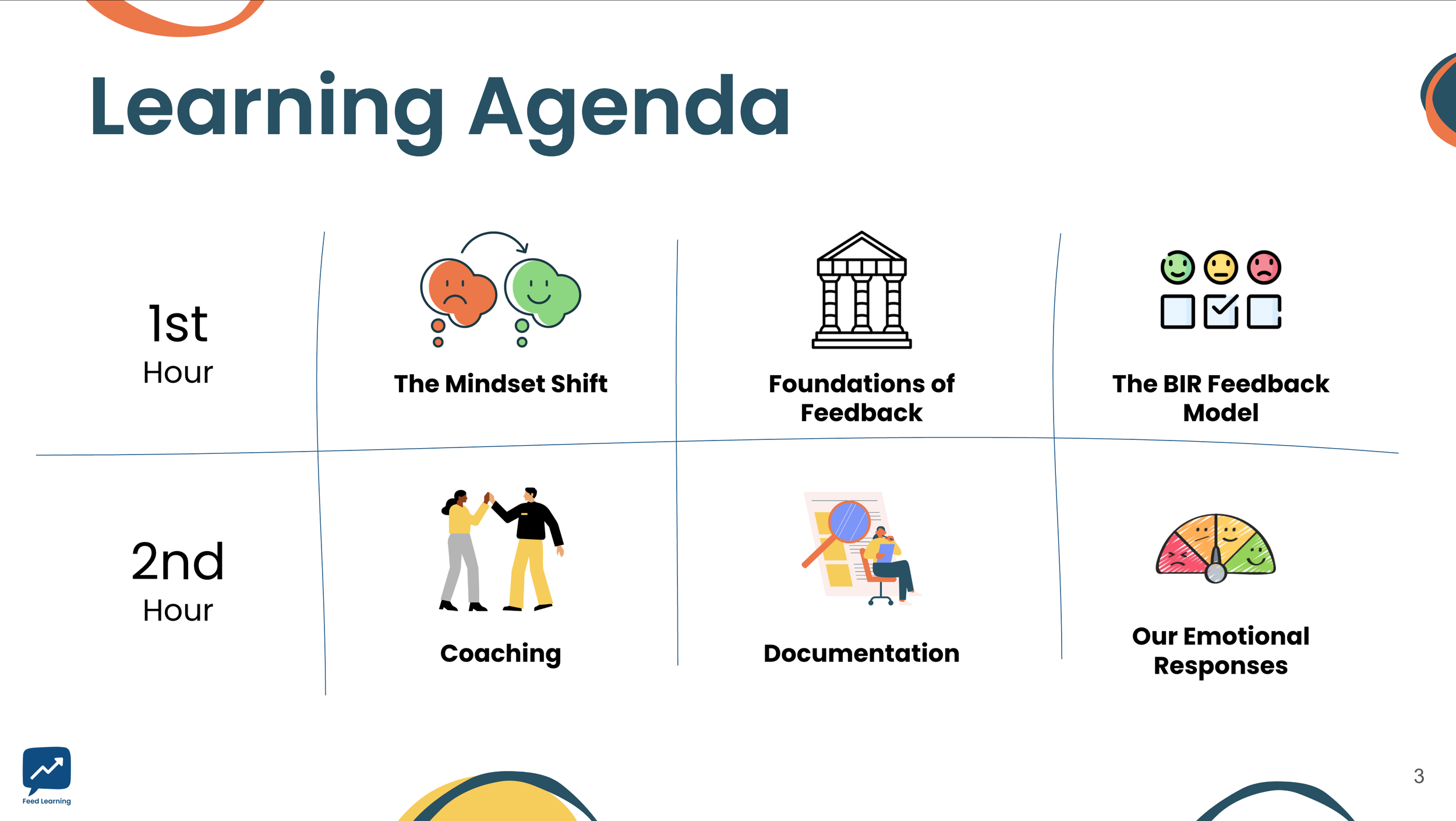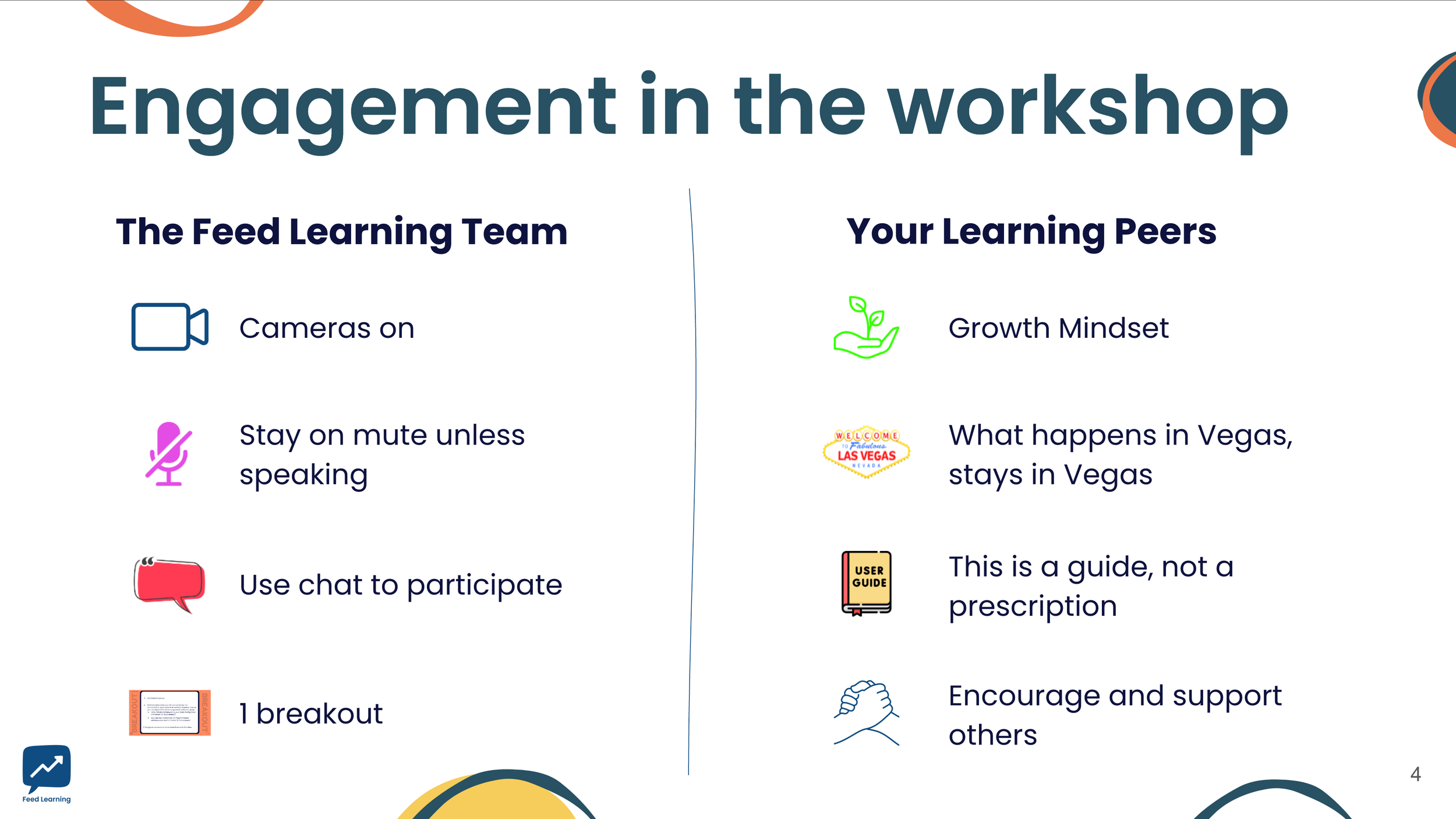Course Description
This workshop will equip managers with the tools and techniques to provide their employees with clear, specific, and actionable feedback. Participants will learn how to level up their feedback skills and manage performance while motivating, inspiring, and developing their teams to create an impact on the business.
Audience: Managers (or aspiring Managers)
Duration: 2 hours
Learning objectives include:
Overcome the fear of uncomfortable (yet extremely crucial) conversations with your employees
Tailor your feedback message to be clear, specific, and focused on the behaviors, not the person
Tactfully handle employee reactions and emotions during a performance feedback encounter
Properly document crucial conversations and follow best practices in performance management
The Focal Point
There are things people do, and there are judgments we make about what people do.
For example, let’s say your employee arrives at a meeting 15 minutes late, and you think, “geez, that person is so disrespectful and has bad time management.”
Now, imagine you going up to that employee and saying, “Geez, you are so disrespectful and have bad time management.” How do you think that employee would respond? How would you feel if someone said that to you?
Instead, you can give feedback on the behavior and say, “Hey, I noticed you arrived at the meeting 15 minutes late. Do you want to talk about what happened?” (Sounds better right?)
So why does the second scenario sound less threatening?
It’s because behaviors are facts based on observations--what you saw someone did and what you heard them say. They’re objective and hard to debate against.
Judgments, on the other hand, are opinions. They are vague words and can mean different things to different people, and many times, they sound accusatory. No one wants to be accused of being something they feel they’re not.
Learning Agenda
This is a 2-hour workshop that’ll include topics around:
The Mindset Shift - First, we’ll talk about the mindset shift. I think many of us avoid giving feedback to others because we think it’s bad news and are afraid of the potential consequences so we avoid it altogether. In this section we’ll talk about how to shift your mindset to make the conversation easier.
Foundations of Feedback - In this section we’ll talk about judgments versus behavior and how to make feedback more specific and actionable.
The BIR Feedback Model - If you don’t remember anything about today’s class, at least pay attention to this section where we talk about the BIR Feedback Model - Behavior, Impact, Request. This is a simple framework we can use on our our employees, peers, and even managers and partners.
Coaching - We’ll briefly discuss how you can incorporate coaching into your conversations.
Documentation - We’ll also show you how to properly document your conversations so they can serve as a tool for both accountability and development.
Our Emotional Responses - Sometimes, employees don’t respond well to the feedback you deliver, so we’ll talk about what to do in those situations.
*Note: This training can be modified to match the needs of your team. Please contact hello@feedlearning.com if you have any special requests.
What to Expect
How to engage with the Feed Learning team:
Have cameras on so I’m able to see your facial expressions and understand if the content is resonating with you or not.
Stay on mute unless speaking to avoid any background noise.
Use chat to participate to share an opinion, respond to someone else, +1 if you find yourself agreeing to something, and to ask clarifying questions.
Actively participate in the breakout to connect with each other in a smaller group setting. If there’s something you prefer to not be in the same breakout room with, please message our technical producer directly.
How to engage with your peers
Embody a growth mindset and remember that it’s okay to ask for clarification on a new concept or learning.
Remember that what happens in Vegas, stays in Vegas and only bring the learnings out of this space, not the detailed conversations.
Realize that this is a guide, not a prescription and the concepts and principles you’ll learn today is meant to be flexible based on the situation.
Encourage and support others by using emojis, the chat, or verbally praise and thank individuals when they share something that resonates with you. Peer-to-peer learning is just as important, if not more important, than a formal training.
Interested in learning more?
Contact us at hello@feedlearning.com.




